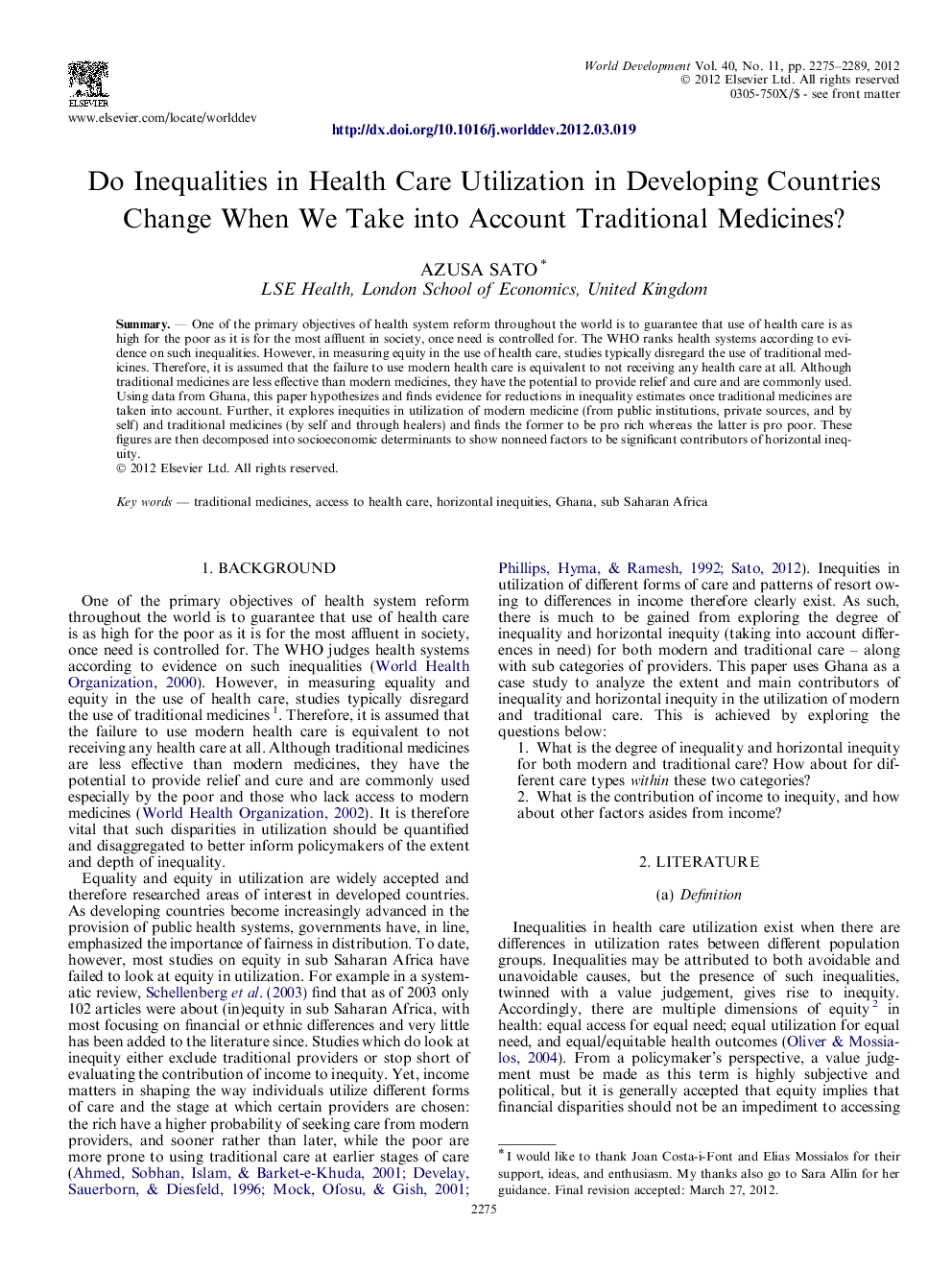| Article ID | Journal | Published Year | Pages | File Type |
|---|---|---|---|---|
| 10486128 | World Development | 2012 | 15 Pages |
Abstract
One of the primary objectives of health system reform throughout the world is to guarantee that use of health care is as high for the poor as it is for the most affluent in society, once need is controlled for. The WHO ranks health systems according to evidence on such inequalities. However, in measuring equity in the use of health care, studies typically disregard the use of traditional medicines. Therefore, it is assumed that the failure to use modern health care is equivalent to not receiving any health care at all. Although traditional medicines are less effective than modern medicines, they have the potential to provide relief and cure and are commonly used. Using data from Ghana, this paper hypothesizes and finds evidence for reductions in inequality estimates once traditional medicines are taken into account. Further, it explores inequities in utilization of modern medicine (from public institutions, private sources, and by self) and traditional medicines (by self and through healers) and finds the former to be pro rich whereas the latter is pro poor. These figures are then decomposed into socioeconomic determinants to show nonneed factors to be significant contributors of horizontal inequity.
Related Topics
Social Sciences and Humanities
Economics, Econometrics and Finance
Economics and Econometrics
Authors
Azusa Sato,
